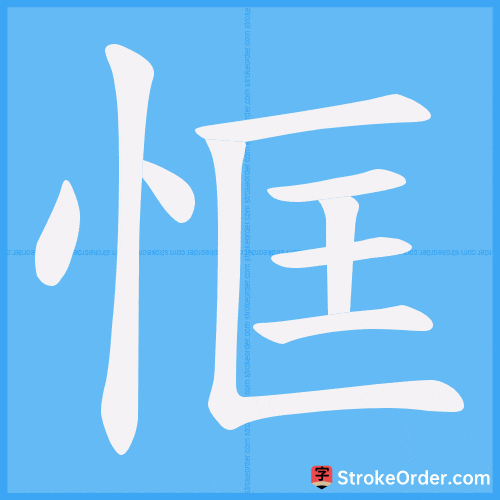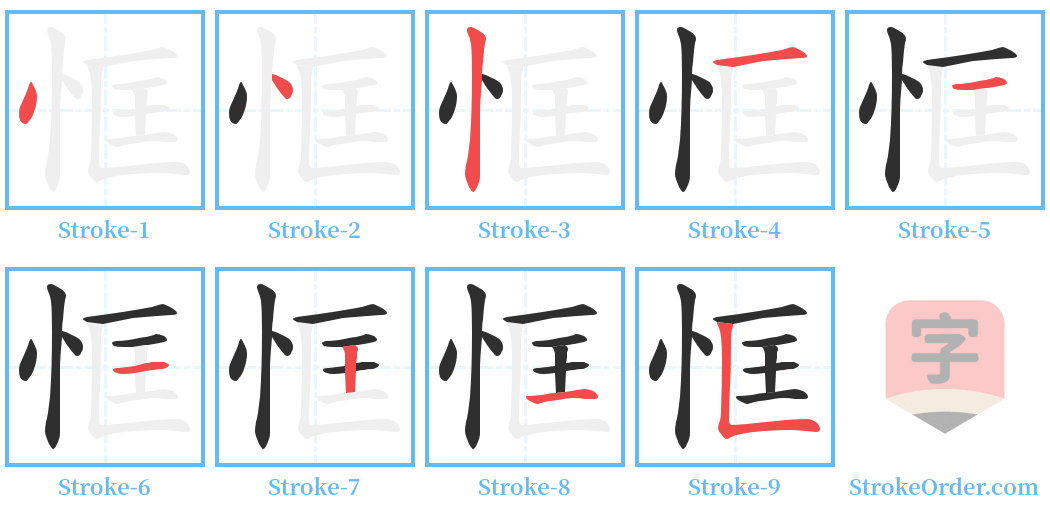恇 Stroke Order
Animated Stroke Order of 恇

Stroke Order Diagrams for 恇

Information of 恇
Pinyin
kuāng
Radical
忄
Strokes
9 strokes
Usage
★★
Definition
恇 [kuāng]
1. Fear; fright; terror.
Example: "When the nation had no heir, both inside and outside were in fear." (时国无嗣主,内外~惧。)
2. Cowardice; weakness.
Example: "Those that are feeble walk in fear." (尺虚者,行步~然。)
3. Expect; anticipate.
Example: "Then, with a punch thrown, if I had not expected it, I would have been killed." (则打的一拳,不~就打杀了。)
引 (References):
1. From "Shuowen Jiezi": 恇 means cowardice. It is composed of the heart radical and the sound component "匡".
2. From "Suwen: On the Discussion of Reality and Illusion": "Those who are feeble walk in fear."
3. From "Book of the Later Han - Biography of Zhang Bu": "At that time, the nation had no heir, and there was fear both inside and outside."
例 (Examples):
- 恇惧 (fear and anxiety)
- 恇迫 (fear and panic)
- 恇恇 (appearance of fear)
- 恇惶 (restless with fear)
- 恇慑 (fear)
- 恇骇 (panic)
- 恇眩 (bewildered)
2. Expect; anticipate.
引 (Reference):
1. From "Yuan Dynasty - Wuhancheng's 'Life in the Golden Pavilion'": "I can expect the husbands in Guo Cheng, such charm in life, it is quite delightful."